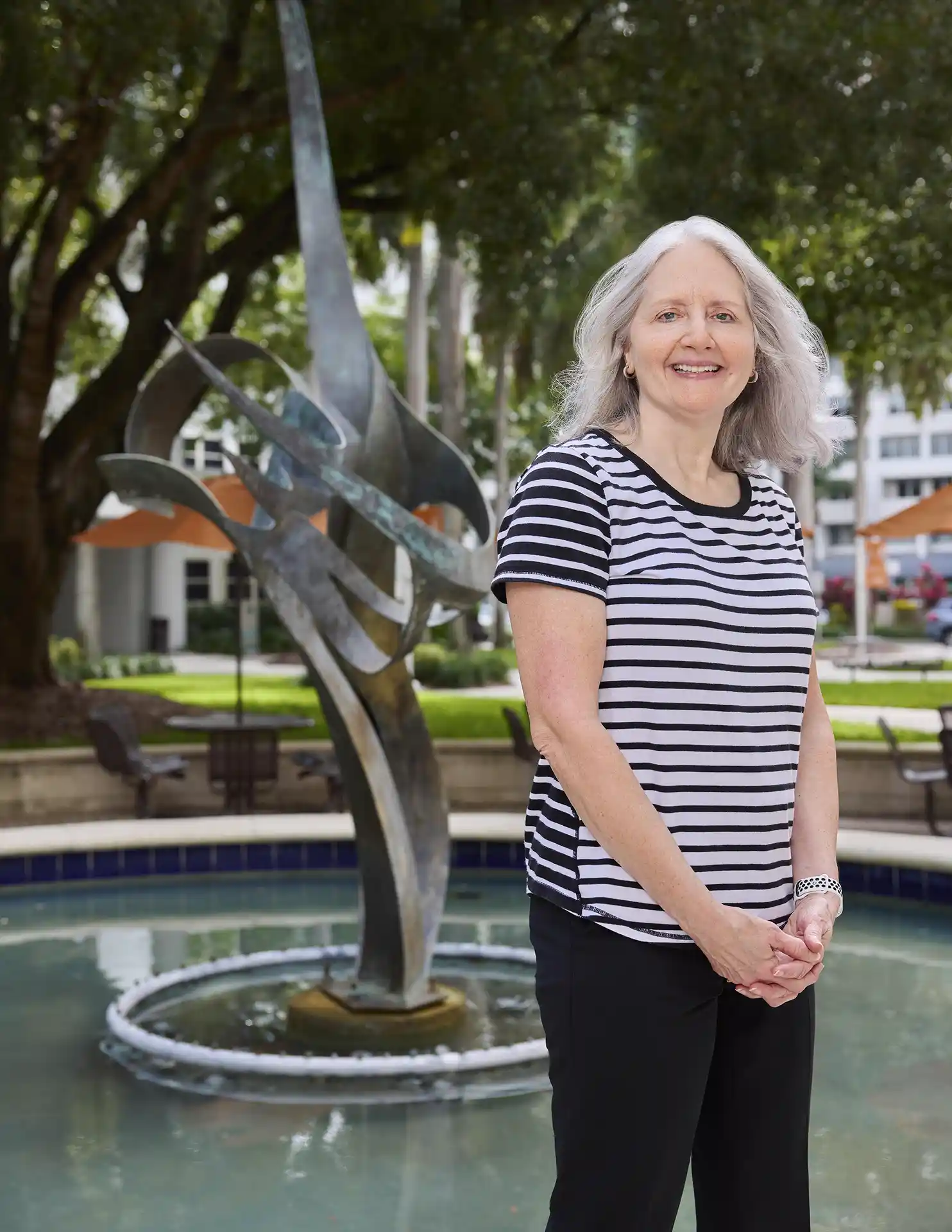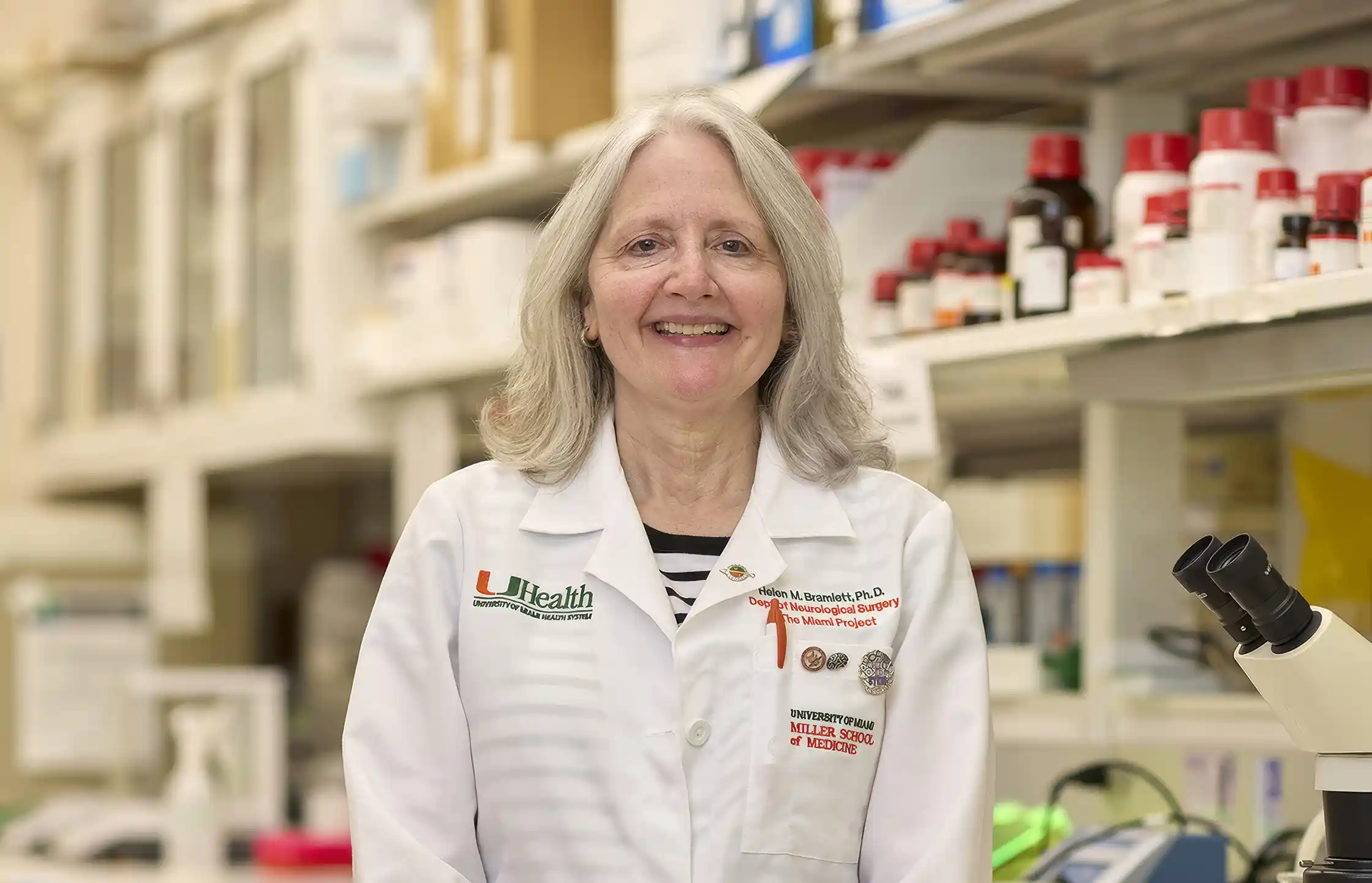An Inquisitive Mind
A renowned traumatic brain injury researcher makes life-changing discoveries at The Miami Project
By Stacey Bomser
Photography by Jeffery Salter

Dr. Helen Bramlett
H
elen Bramlett, M.S. ’97, Ph.D. ’98, always thought she would be a clinical psychologist, but her career path changed dramatically after she discovered a passion for traumatic brain injury research. The calling was so strong that she transferred to the University of Miami to pursue graduate studies and work alongside some of the world’s leading investigators in this emerging field.
“I became skilled in the lab in terms of the different techniques that we were using to help treat neurotrauma,” said Dr. Bramlett, who is a professor in the Department of Neurological Surgery, director of the Undergraduate Neuroscience Program and member of The Miami Project to Cure Paralysis. “My first published paper was on the use of therapeutic hypothermia after traumatic brain injury.”
That pivotal research laid the foundation for using targeted temperature management to treat spinal cord injuries and other conditions, including cardiac arrest and stroke.
Dr. Bramlett is now an internationally recognized scientist with more than 25 years of experience in the field of central nervous system injury — specifically traumatic brain injury, spinal cord injury and ischemic stroke. She is taking the next step, working with colleagues in the Miller School’s Department of Biochemistry and Molecular Biology to develop a nanoparticle drug that targets temperature receptors in the brain, resulting in lowering an individual’s body temperature.
“This could potentially provide early treatment prior to arrival at the hospital, where intravascular catheters or cooling blankets for therapeutic hypothermia treatments would be used,” Dr. Bramlett said. “The development of a nano drug using nasal delivery that could drop systemic temperature would be a game-changer because it could be used in an ambulance, providing early intervention to the patient.”
Nano drugs to lower systemic temperature are just one of the numerous laboratory investigations for clinical applications Dr. Bramlett is involved in. She is also investigating the use of whole-body vibration therapy to reduce bone loss in patients with spinal cord injuries, the impact of menopause-induced frailty after traumatic brain injury, and communication between the gut and brain after traumatic brain injury in patients with Alzheimer’s disease.
“I can’t imagine being anywhere else and doing the research that I do,” said Dr. Bramlett, who did a postdoctoral fellowship in neurotrauma at the Miller School. “From my initial laboratory work, I have been driven by translational science. Seeing findings translated from the lab to the clinic is what drives all of us who have dedicated our careers to research.” ![]()



